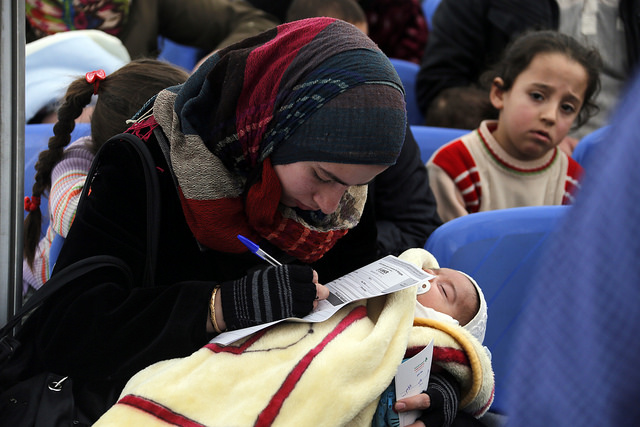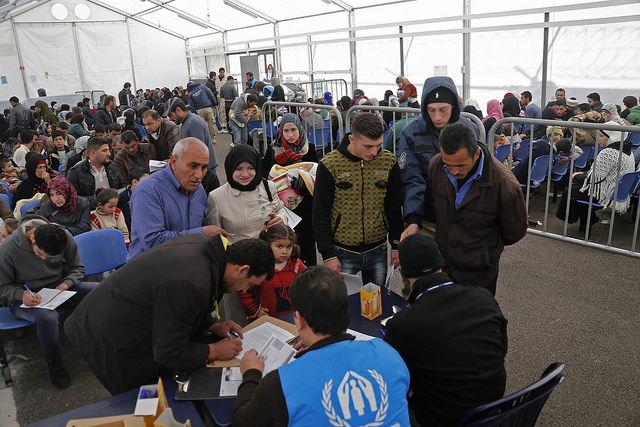We’re exhausted. My last post was written in the days immediately following the SCOTUS same sex marriage decision, and it seems the entire summer has been one long stream of public controversies, celebrity scandals, tragedies, disasters and culture war battles. This week alone our social media feeds have been filled with dead police officers, Kim Davis, Lila Perry, the humanitarian crisis in Yemen, destruction of historical sights by ISIS, and the latest outrage quotes from Trump. We are worn out with arguments and laments and calls to action.
But in the middle of all of of this noise, there were photos of a tiny boy in velcro sneakers, lying face down in the sand.
Aylan Kurdi insisted upon our attention. Thank God, after the first few hours we began to see photos showing Aylan in life, smiling next to his brother, Galip – who also died in the waters of the Mediterranean, along with their mother, Rehen. Suddenly the stories we’ve heard about this refugee crisis, the numbers we’ve ignored – all of this white noise behind our outrage over dead lions and marriage licenses and Ashley Madison – it had faces and names.
But this is how social media works: in the past two days I’ve seen dozens of stories about Aylan Kurdi, and dozens more about the refugee crisis. It is front and center, which means it is momentarily inescapable. We are grieving and distressed and horrified together, and all of this emotion is our collective catharsis. Soon we will have had enough of thinking about it and we will play a subtle trick on ourselves. We will believe that our thinking and feeling was actually doing something. A few days of reading statistics and weeping over photos will serve as what we owe to Aylan and Galip and Rehen, and the millions of other refugees clinging to leaky rafts, crowding train stations, squeezing through barbed wire fences.
“I can’t take it. I can’t think about this anymore,” we’ll say, and most of us will experience compassion fatigue without having actually done anything. I know this cycle because I go through it over and over again.
Please, if you are like me – quick to feel and slow to act – can we do better this time? Can we do something in response to the largest refugee crisis of my lifetime? Can we take seriously the brotherhood of man, the idea of loving our neighbors – beautiful notions that mean nothing, nothing, nothing if we are never moved to act.
Others have already done the work of finding ways we can help, and I will pass a few of those along to you. You may not be able to do very much, I may not be able to do very much, but we can do something. Let’s pay attention a bit longer; let’s stave off the very valid excuses until we have performed at least one small act to relieve the suffering of our brothers and sisters. The compassion fatigue can wait.
Churches of the Nazarene (my denomination) are caring for Syrian refugees in both Jordan and Syria. To learn how to donate toward their work, go here.
My friend Cris sent me the link to a fundraiser for a Syrian Christian community (in one of the remaining safe zones) that is caring for 800 refugee families.
Ann Voskamp has written an extraordinary post on the refugee crisis, including five ways we can act.
Catholic Relief Services does good work, and is serving refugees both in the Middle East and in Europe.
Finally, here’s a whitehouse.gov petition asking our federal government to commit to the resettlement of 65,000 Syrian refugees (we’ve accepted less than 1,000 in the last four years).





One of the things I truly hate about the information age (there are things I love, as well) is the clamor and confusion over what is important. We’re fatigued because we’re bombarded. One thing after another. And in that constant barrage the things that really matter, like this, are quickly drowned out.
LikeLiked by 1 person